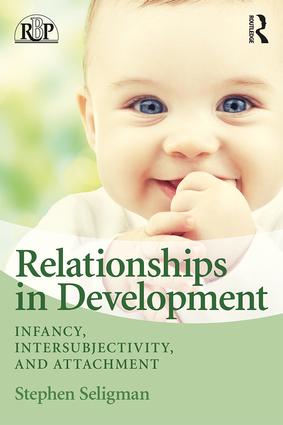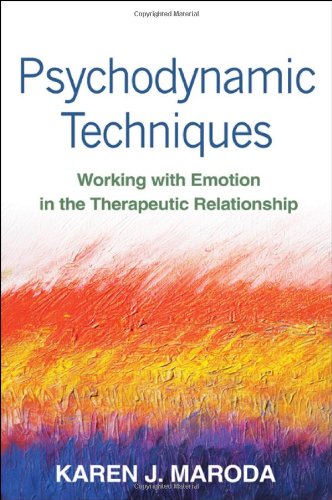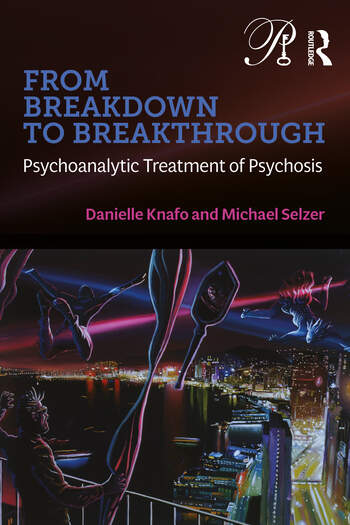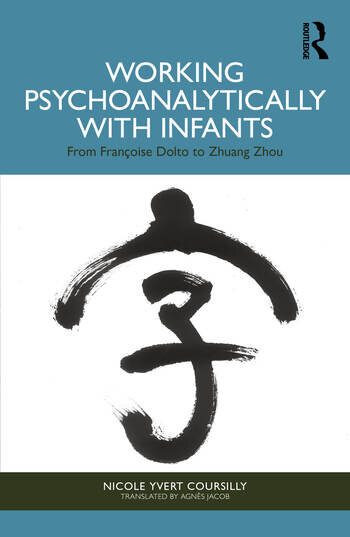Relationships in Development: Infancy, Intersubjectivity, and Attachment
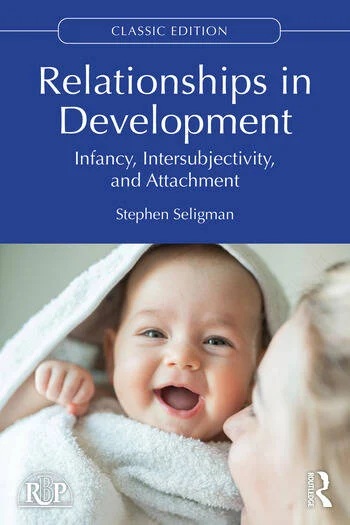
Book Details
- Publisher : Routledge
- Published : April 2026
- Cover : Paperback
- Pages : 256
- Category :
Forthcoming - Category 2 :
Psychoanalysis - Catalogue No : 98308
- ISBN 13 : 9781032998480
- ISBN 10 : 1032998482
Also by Stephen Seligman
There are currently no reviews
Be the first to review
Relationships in Development is both a clinical resource and a vital intellectual history - a clear account of how research about infancy transforms psychotherapy practice and an authoritative survey of the place of child development in psychoanalysis.
It updates developmental psychoanalysis by integrating it with trauma theory, neuroscience, nonlinear dynamic systems theories, and infant mental health work. “Executive summaries” of attachment, intersubjectivity and “the relational baby” are offered, leading to an open and flexible approach to psychodynamic therapy in varied socioeconomic and cultural situations. This Classic Edition includes a new introduction assessing the current state of developmental thinking in the psychotherapy world.
Relationships in Development will appeal to psychoanalysts, psychoanalytic psychotherapists, and graduate students in psychology, social work, and psychotherapy, as well as to all those interested in psychotherapy and child development.
Reviews and Endorsements
Stephen Seligman’s new book is a valuable contribution to the psychoanalytic dialogue concerning developmental theory and its implications for analytic practice. His discussion of relational-developmental psychoanalysis is without parallel. It seems to me to pick up where Greenberg and Mitchell’s 1983 classic, Object Relations in Psychoanalytic Theory, leaves off. He presents in a highly readable way a multi-disciplinary approach that includes direct infant observation, experience with patients in psychoanalysis, as well as social, historical and biological contributions. The result is a compelling study of twenty-first century psychoanalysis, which will enrich the perspectives of psychoanalysts and infant observers, as well as students of any field that takes as its object of study the human condition in all of its complexity.
Thomas H. Ogden, author most recently of What Alive Means and Coming to Life in the Consulting Room
This is an outstanding book. It provides a masterly account of developments in psychoanalysis particularly in relation to its theories of childhood and development. The account leads toward relational analysis yet takes off in highly original directions in its discussion of the importance of puzzled and open attention and the implications for the development of the sense of time and of the future in patients filled with a sense of futility. The chapters on the link between temporality and intentionality are fascinating and need urgently to be read by all clinicians. The whole book is wonderfully clear in the way it links infant observation and psychoanalysis. It is also a great read.
Anne Alvarez, Consultant Child and Adolescent Psychotherapist; retired Co-Convener of the Autism Service, Child and Family Dept., Tavistock Clinic, London, UK
This profoundly integrative work is a remarkable journey through psychoanalysis from the point of view of infancy and child development. Weaving together past and present, directly informing our clinical work with immediacy and energy, this book is superb.
Beatrice Beebe, Clinical Professor, Columbia University Medical Center
Table of Contents
New Introduction
Introduction: Why Developmental Psychoanalysis?
Part I - How We Got Here: A Roadmap to Psychoanalytic Theories of Childhood and Development
1. Childhood Has Meaning of Its Own: Freud and the Invention of Psychoanalysis
2. Theory I: Foreshadowings: Core Themes and Controversies in the Early Freudian Theories
3. The Baby at the Crossroads: The Structural Model, Ego Psychology, and Object Relations Theories
4. Theory II: What Is a "Robust Developmental Perspective?"
5. The Postwar Diversification and Pluralization of Psychoanalysis in the United States: Interdisciplinary Expansion, the Widening Clinical Scope and the New Developmentalism
Part II - The Relational Baby: Intersubjectivity and Infant Development
6. Infancy Research: Toward a Relational-Developmental Psychoanalysis
7. Clinical Implications of Infancy Research: Affect, Interaction and Non-Verbal Meaning in the Dyadic Field
8. Theory III: The Relational Baby: Psychoanalytic Theory and Technique Continuities from Infancy to Adulthood: The Baby is Out of the Bathwater
9. Theory IV: The Move to the Maternal: Gender, Sexualities, and the Oedipus Complex in Light of Intersubjective Developmental Research
Part III - Attachment and Recognition in Clinical Process: Reflection, Regulation and Emotional Security
10. Intersubjectivity Today: The Orientation and Concept
11. Attachment Theory and Research in Context: Clinical Implications
12. Recognition and Mentalization in Infancy and Psychotherapy: Convergences of Attachment Theory and Psychoanalysis
13. Infant–parent interactions, phantasies, and an “internal two-person psychology”: Kleinian and intersubjective views of projective identification and the intergenerational transmission of trauma
Part IV - Vitality, Activity, and Communication in Development and Psychotherapy
14. Coming to Life in Time: Temporality, Early Deprivation, and the Sense of a Lively Future
15. Forms of Vitality and Other Integrations: Daniel Stern’s Contribution to the Psychoanalytic Core
Part V - Awareness, Confusion and Uncertainty: Nonlinear Dynamics in Everyday Practice
16. Feeling Puzzled While Paying Attention: The Analytic Mindset as an Agent of Therapeutic Change
17. Dynamic Systems Theories as a Basic Framework for Psychoanalysis: Change Processes in Development and Therapeutic Action
18. Searching for Core Principles: Louis Sander’s Synthesis of Biological, Psychological, and Relational Factors and Contemporary Developmental Psychodynamics
About the Author(s)
Stephen Seligman is Clinical Professor of Psychiatry at the University of California, San Francisco and the New York University Postdoctoral Program in Psychoanalysis, and Training and Supervising Analyst at the San Francisco Center for Psychoanalysis.
Customer Reviews
Our customers have not yet reviewed this title. Be the first add your own review for this title.
You may also like
Psychodynamic Techniques: Working with Emotion in the Therapeutic Relationship
Karen J. Maroda
Price £33.99
Working Psychoanalytically with Infants: From Françoise Dolto to Zhuang Zhou
Nicole Yvert Coursilly
Price £29.99


